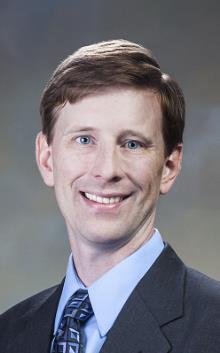- Bienvenido
- Proceedings
- Inscripción
- App 44JAIIO
- Organizadores
- Simposios
- Conferencias
- Fechas importantes
- Programa
- Formatos
- Envío de trabajos
- Estudiantes voluntarios
- Sponsors
- Becas
- Auspicios
- Póster 44 JAIIO
- Hoteles y alojamientos
- Proceedings
Detalle de videoconferencia del Dr. John D. Siirola
|
Abstract: Computational tools for modeling mathematical programs are in wide-spread use within both academia and industry. While available commercial and open-source software packages provide strong capabilities for model genericity by separating modeling constructs from instance data through concepts like sets, parameters, and parameterized constraints, the final model representations are generally limited to constructs that directly correspond to established solver inputs. Similarly, while these environments frequently support an ability to script the model and solution process, these scripted processes are typically ad hoc and specific to the model in question. In contrast, the open source optimization modeling environment Pyomo focuses on extensibility and the development of generic optimization algorithms and solution approaches. In this presentation, I will introduce some of the advanced modeling capabilities in Pyomo, including structured block-oriented models, Generalized Disjunctive Programming, and Stochastic Programming. I will show how Pyomo can map these modeling constructs into algebraic forms that are compatible with standard optimization solvers using user-configurable automated model transformations. I will also show how Pyomo’s object model supports developing custom solution workflows, from simple preprocessors like applying basic steps to disjunctive models, to complex decomposition algorithms like Progressive Hedging and Benders Decomposition. Throughout this talk I will draw examples from Sandia’s multi-year effort developing scalable solutions to optimization problems arising from power grid planning and operations. In particular, I will highlight solutions to stochastic unit commitment, incorporating transmission switching into N-1 reliability analysis, and stochastic grid expansion planning models. |
|
| Short Bio: Dr. John D. Siirola is a Principal R&D Member of Technical Staff in the Optimization and Discrete Math Department within the Center for Computing Research at Sandia National Laboratories. His main areas of expertise are systems design, operations research, optimization modeling, and optimization algorithms. John’s research focuses on the intersection of computational tools with systems design and analysis; in particular, developing approaches for modeling highly structured systems, optimization algorithms that can exploit the expressed structure, and the application of these techniques to national security problems. Much of John’s research is disseminated through open-source software projects. He leads the Acro project (optimization algorithms) and co-leads the Pyomo project (optimization modeling). He is a contributor to the Water Security Toolkit (modeling and analysis tools for drinking water distribution systems) and Dakota (optimization and uncertainty quantification), and contributes to numerous tools, including Utilib, PyUtilib, gcovr, and cxxtest. John has a B.S. from Purdue University (2000) and Ph.D. from Carnegie Mellon University (2005), both in Chemical Engineering. He is a senior member of the AIChE, member of INFORMS, and member of the COIN-OR Foundation. John currently serves on the COIN-OR Technical Leadership Council and recently co-chaired the 2014 Foundations of Computer Aided Process Design (FOCAPD) conference. |
 |
